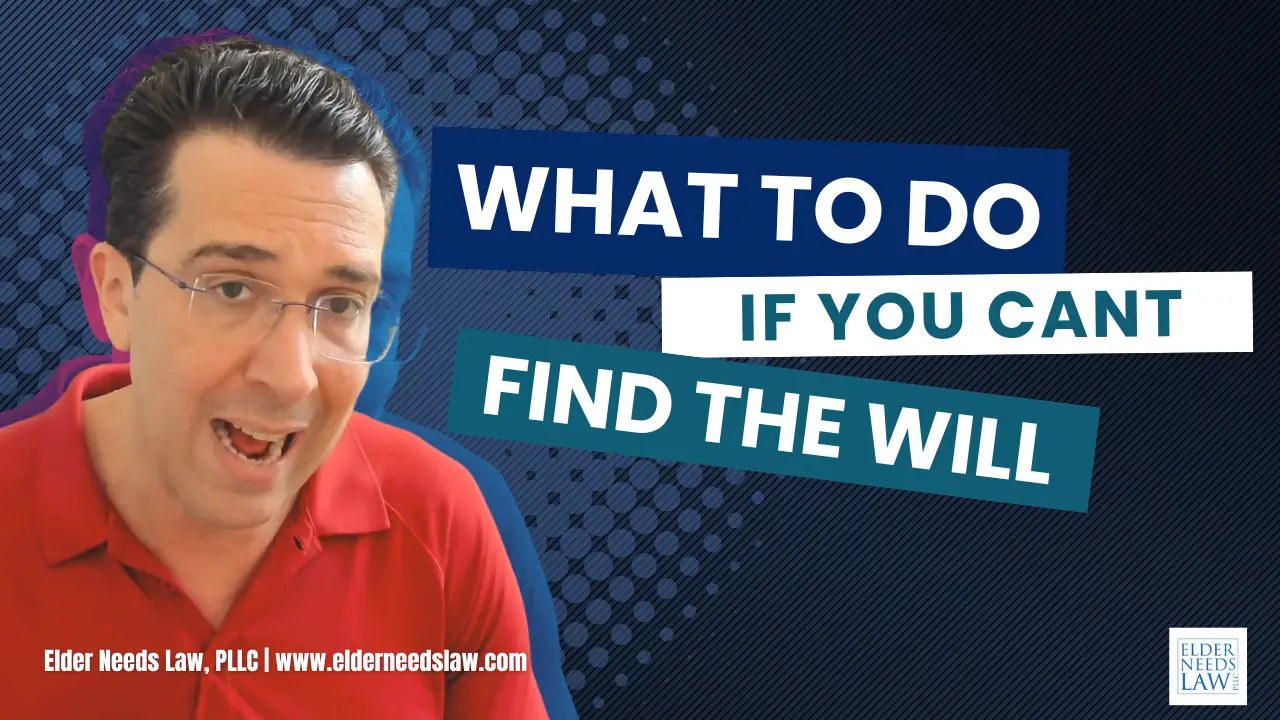What Happens When You Can't Find a Will in Florida?

A Common Concern for Families During a Difficult Time
Losing a loved one brings many challenges, and one question that frequently arises is: "Where is the will?" This situation occurs more often than you might think, and many families find themselves searching for this important document when they need it most.
The Truth About Will Storage in Florida
Here's something that surprises many people: there's no central database for wills in Florida. Unlike property deeds or birth certificates, wills aren't recorded with any government office before someone passes away. This common misconception leads many families on a fruitless search through public records.
The reality is that a will only becomes part of the public record after death, when it's filed with the clerk's office in the county where the person passed away. This filing initiates the probate process—the legal procedure for distributing someone's assets according to their wishes.
Where to Start Your Search
Before assuming a will is lost forever, take these practical steps:
Contact Family Members
Reach out to siblings, adult children, and other close relatives. Someone may have received a copy of the will, or better yet, might know where the original is stored. Even if they don't have the document itself, they might remember conversations about where it was kept.
Check With Former Attorneys
If you know which law firm helped prepare the will, contact them. Most attorneys maintain copies of wills they've drafted for their clients. Even if the attorney has retired or the firm has changed hands, these records are typically preserved and accessible.
Search Common Storage Locations
People often keep important documents in predictable places:
- Home safes
- Safe deposit boxes at banks
- Filing cabinets or desk drawers
- With other important papers like insurance policies and property deeds
When the Will Can't Be Found
After exhausting all reasonable options, you may face the reality that the will cannot be located. This doesn't mean the probate process stops—it just changes direction.
Moving Forward Without a Will
You can still initiate probate proceedings even without a will. During this process, if someone eventually finds the will, it can be submitted and honored. However, if the document never surfaces, Florida law has a backup plan.
Florida's Intestate Succession Laws
When someone dies without a will—either because they never created one or because it cannot be found—Florida statutes determine how assets are distributed. This is called dying "intestate."
The intestate succession laws follow a specific hierarchy based on family relationships:
If the deceased was married:
- The spouse typically receives a significant portion or all of the estate
- The distribution varies depending on whether there are children from the marriage or from previous relationships
If there was no spouse:
- Assets pass to children equally
- If no children, then to parents
- If no parents, then to siblings
- The law continues through more distant relatives if necessary
The Consequences of a Lost Will
This is where things can become particularly difficult for families. Suppose a father created a will stating that he wanted his entire estate to go to one child rather than dividing it equally among his children. If that will cannot be found, his wishes documented in that will become irrelevant. The intestate succession statute takes over, and assets will be distributed according to state law—not according to what he wanted.
This outcome can create family tension and results that the deceased person never intended. It's why keeping a will in a secure but accessible location, and letting trusted family members know where to find it, is so important.
Preventing This Problem
While this article addresses what happens when a will goes missing, prevention is always better than solving the problem after the fact. Consider these recommendations:
Keep Multiple Copies
While only the original will is used for probate, having copies allows family members to know your wishes even if the original is temporarily misplaced.
Tell Someone You Trust
At least one trusted family member or friend should know where your will is stored. This doesn't mean they need to read it—just know its location.
Store It Properly
A fireproof home safe or bank safe deposit box protects against physical damage. Just make sure someone knows the combination or has access to the key.
Keep Your Attorney's Contact Information Accessible
If your attorney maintains a copy, make sure your family knows how to contact that law firm.
Resources for Florida Families
[YouTube Video Tutorial - Template]
Whether you're dealing with a missing will right now or want to ensure your own estate planning documents are properly organized, professional guidance can make this process much smoother.
For more information about probate and estate planning in Florida, visit ElderNeedsLaw.com or MedicaidPlanningLawyer.com.
You can also find detailed information about protecting your assets and planning for long-term care needs in the book "Medicaid: How to Pay for Some of Your Long-Term Care Expenses", available on Amazon.
Getting Help With Probate in Florida
If you're currently facing a situation where you cannot locate a will, or if you've found yourself dealing with the probate process, professional assistance is available throughout Florida. A probate attorney can help you file the necessary paperwork, communicate with the court, and ensure the estate is handled according to Florida law—whether a will exists or not.
The loss of a loved one is difficult enough without the added stress of legal complications. While a missing will creates additional challenges, it doesn't make the probate process impossible. With the right guidance and a clear understanding of Florida's intestate succession laws, families can move forward and settle estates even in less-than-ideal circumstances.







